Where It Starts: A conversation with Miles Okazaki about Thelonious Monk
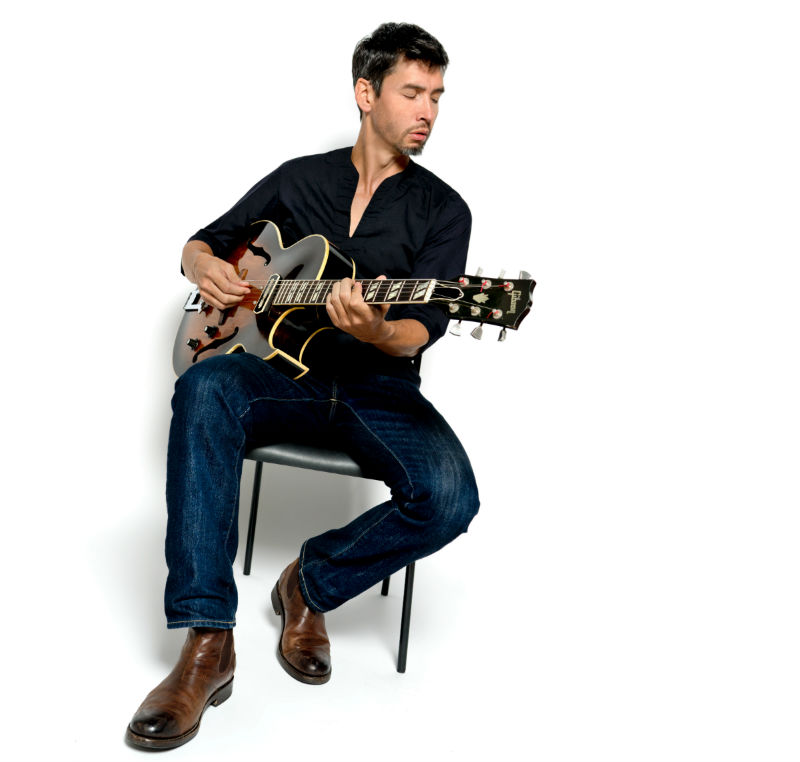
Miles Okazaki is among the greatest living improvisers on the guitar. An assistant professor of jazz guitar at the University of Michigan, he has his own deep and well-conceived ideas about rhythm, harmony, and melody. A few weeks ago I had the opportunity to sit down with Okazaki to discuss his latest release, a massive six-volume solo-guitar project entitled Work in which he recorded every song by Thelonious Monk -- 70 in total -- with no effects, overdubs, key or time changes.
It’s difficult to overstate the importance of Monk in American music. His approach to harmony, melody, and especially rhythm has influenced virtually every musician who has followed him. It was a privilege to be able to get into the weeds with Okazaki on the topic of Monk’s music.
Our conversation is below, with some edits for flow.
Rhythm and the Blues: Kristianna explores heartbreak stories on "Too Late to Be Sorry"
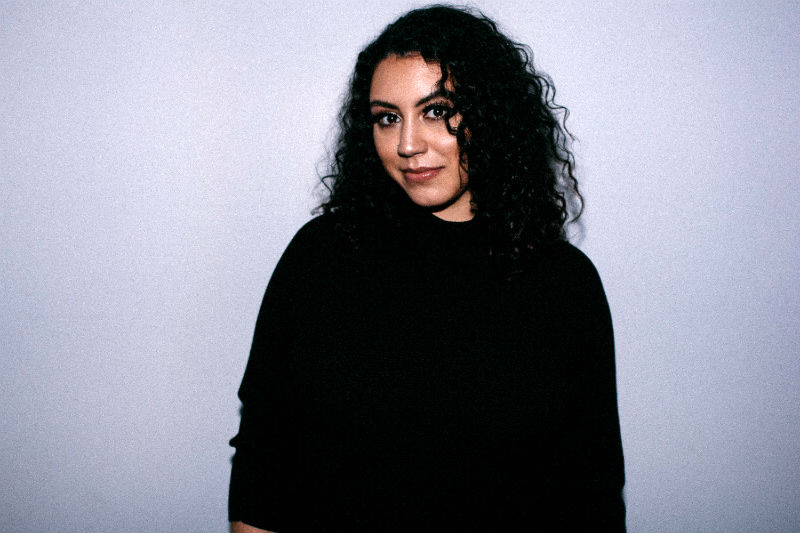
Kristianna didn't mean to write a concept record about relationships. The Ypsilanti native wrote the five songs on Too Late to Be Sorry over five years "and once I came up with the concept, I placed them carefully in order to tell the story," she said.
The slow-jam R&B tunes are bookended by two voicemails, which tie together the tale.
"The album concept is all about communication, or the lack of, using telecommunication, and is meant to be heard in the track order," said Kristianna. "So the intro is the girl calling this guy letting him know her feelings through these songs, then you hear voicemails throughout the project back and forth from the female and the male perspective. The outro is him calling back after he listened to the mixtape that was made for him, leaving the listener ready for part two."
Vern Smith’s novel "The Green Ghetto" aims to be an urban Western set in Detroit
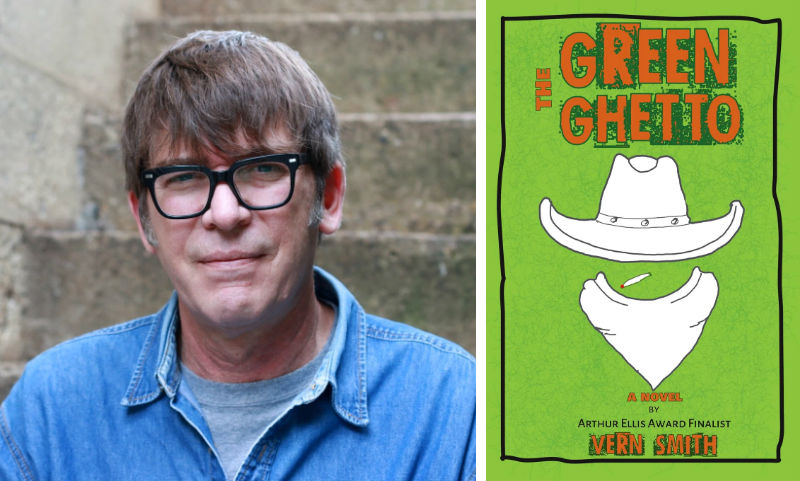
“Overnight I found my love affair with Detroit slipping away. My worldview changed," said author Vern Smith, speaking of his experience in the wake of the September 11, 2001, terrorist attacks in New York City.
Growing up in Windsor, Ontario, Smith said, “Detroit was my second hometown. I started sneaking over the border when I was 11 and found my culture there. Can’t tell you how many live shows I’ve seen there because it was so easy to access pre-9/11. Then it changed so abruptly and [the two cities] were being kept apart.”
Smith’s novel The Green Ghetto takes place a year after the New York attacks, which was about the same time the former journalist and broadcaster started working on short stories.
Joe Bauer's "Robots vs. Aliens" is a multimedia art project, concept album, and mailed mystery tale
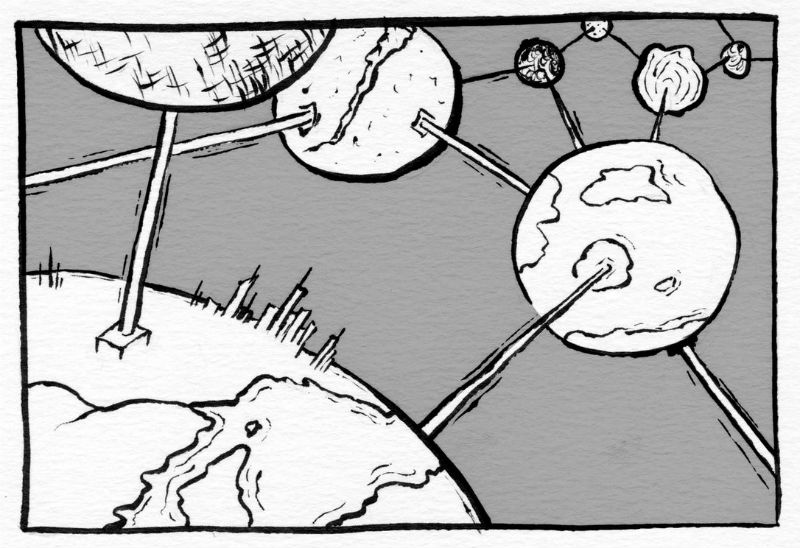
It may sound like a movie title ripe for a Mystery Science Theater 3000 show, but Robots vs. Aliens is the name of a new multimedia art project by Joe Bauer, an Ann Arbor-based musician and co-founder of the North Coast Modular Collective.
Produced under Bauer's stage name, Verzerren, Robots vs. Aliens is comprised of a concept album featuring modular synthesizers, illustrations, mailed letters and postcards, and performances at Riverside Arts Center in conjunction with the new exhibition Towards/Past the Future, which explores "technology, society, and identity through the lens of science fiction."
Set 100 years into the future, Robots vs. Aliens tells the story of humans and cyborgs living together, but their equilibrium is disrupted when peaceful dispatches from extraterrestrials are misinterpreted. The robots revolt, aliens invade, at the Earth is devastated. But the remaining humans have a chance at redemption when intercepted messages are sent back in time in hopes that people will read them and make different choices to induce an alternative future. This is where the postcards and letters by Bauer and artist Aaron Graff come into play: participants will receive these documents in the mail over a two-week period with the object of piecing together the story and solving the mystery of how humanity can save itself.
I asked Bauer some questions over email about the inspirations and ideas behind Robots vs. Aliens, which you can also listen to below.
Theatre Nova’s Playwrights Festival lets the audience help writers find their voice
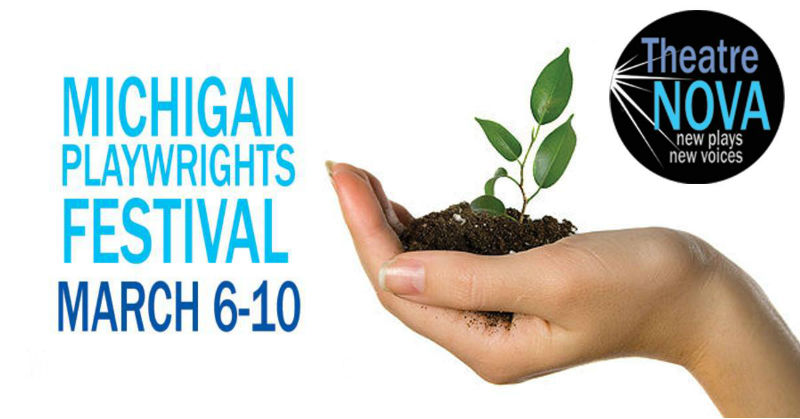
Playwrights begin with an idea. They imagine a setting, develop a cast of characters, and write a script. But that’s just the beginning. A director and actors will breathe life into the writer’s words. Only then can a writer get a feel for whether his or her play hits its mark.
That’s where the semi-annual Michigan Playwrights Festival at Theatre Nova provides an important service to playwrights and a great opportunity for theatergoers to see an original play in its infancy.
“Playwrights tell us how valuable it is to hear their play read out loud by professional actors in front of an audience,” said Diane Hill, producing artistic director of Theatre Nova, in an email interview. “They can see if what they thought was funny actually receives laughs or if what they thought might be a poignant moment falls flat. They also listen to the audience discussion that follows the reading concerning its positives and negatives which can sometimes lead to script alterations.”
Five new plays by Michigan playwrights will be presented March 6-10 in staged readings at Theatre Nova in Ann Arbor.
Ann Arbor folk-rockers Little Traps hide complexity inside a warm, inviting sound
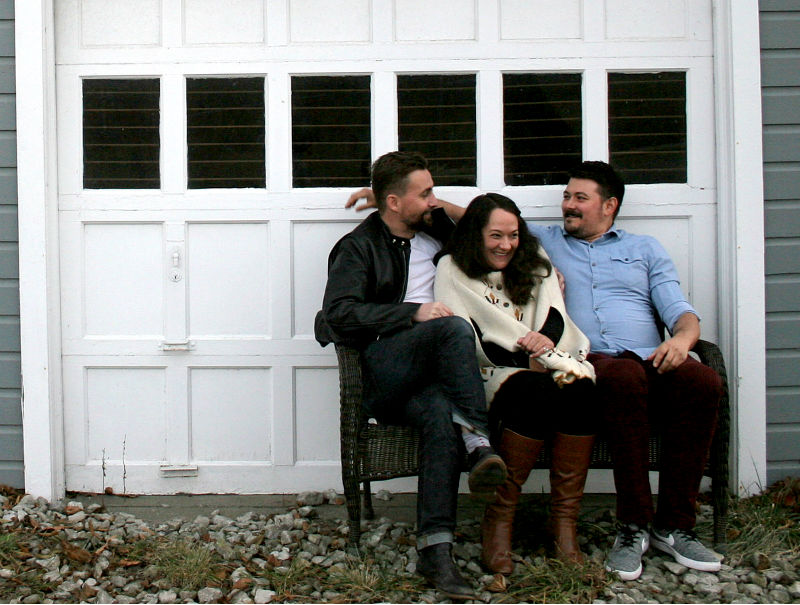
The local indie folk-rock band Little Traps brings sharp musicianship, an off-center outlook, and a distinctive sound with a banjo leading the way. Released late last year, their first full-length album, Can’t Count, is a welcome showcase of their work.
The band charms listeners with its warm, inviting sound, but underneath lies a somewhat more complex tone. “Uncertainty, ambivalence, and second-guessing are the bread and butter of my lyrics,” singer-songwriter-guitarist Nick Bertsos says.
In addition to Bertsos, the core band consists of singer-banjoist Annie Palmer and guitarist/pedal steel player Thomas Green. At various times other musicians help fill out the sound; on Can’t Count, Howard White plays bass and keyboards, while Ali Snyder plays drums. On New Tricks, a recently released EP of cover songs, Jessiah Hall is the drummer.
Bertsos answered a few questions recently via email:
Timeless Ocarinas: The Seven Sages interpret music from The Legend of Zelda
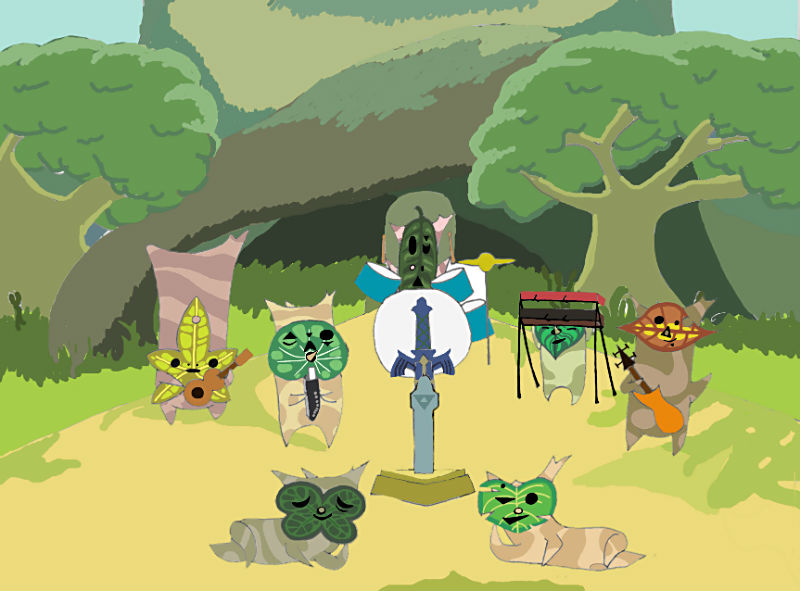
John Coltrane on the saxophone.
Eddie Van Halen on the guitar.
Link on the ocarina.
These are giants of their instruments.
But only one of these masters will be feted by The Seven Sages, a new quintet dedicated to playing music from The Legend of Zelda video game series.
Comprised of accomplished jazz and experimental artists Kirsten Carey (guitar), Andrew Hintzen (keyboard), Neal Anderson (EWI / trumpet), Jon Hammonds (bass), and Jonathan Taylor (drums), The Seven Sages make their debut at Ziggy's in Ypsilanti on February 21 -- the 33rd anniversary of the first Legend of Zelda game being released.
Carey and Hammonds answered some questions in an email interview about how The Seven Sages materialized, which Zelda songs the band will play, and their favorite tunes from the games. The queries were posed by myself and Eli Neiburger, who is deputy director of the Ann Arbor District Library and a member of the Nintendoland Family Band.
A Genuine Act of Discovery: U-M's Juan Cole on his book "Muhammad: Prophet of Peace Amid the Clash of Empires"
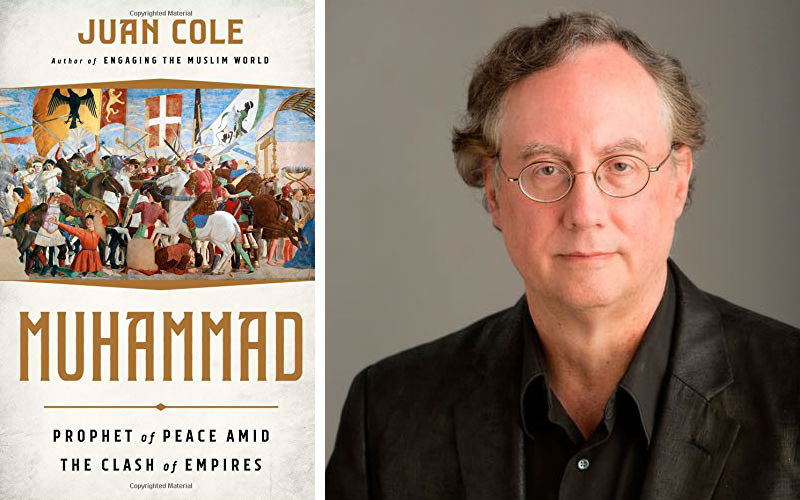
Dr. Juan Cole has spent his life dedicated to the study of the Middle East, Muslim South Asia, and religion. He’s been at University of Michigan since 1984, quoted in papers from the L.A. Times to the Baltimore Sun, and appeared on PBS Newshour, Nightline, and The Colbert Report. He received a National Endowment for the Humanities grant for research on Shiite Muslim thought and history, published translations of Arabic literature by Kahlil Gibran (and later, sponsored an exhibit of Gibran’s paintings at the Detroit Institute of Arts), acted as the director of the Center for Middle Eastern and North African Studies at U-M, served as editor in chief of the International Journal of Middle East Studies, and wrote or translated nearly 20 books.
This past October, Bold Type Books published Cole’s most recent book, Muhammad: Prophet of Peace Amid the Clash of Empires. The book’s publication at this particular time is in response to recent events around the world. “Extremist groups are misusing or using religious text in dishonest ways," Cole says. "North America and Europe have seen a rise in Islamophobia and the smearing of the prophet Muhammad.”
Cole originally studied early Islam and its foundations while in graduate school in Cairo and later at UCLA. “I got pulled away from the medieval studies," Cole says, "and pulled into writing about modern and contemporary issues in the Middle East by several events,” including the Iranian Revolution. “Although I had this earlier training, I didn’t put it to use in a whole book until now. I tried to tell the story as a response to this moment that we find ourselves in.”
Valentines, Funny & Otherwise: The Derrick Benford Quartet will provide the soundtrack February 14 at AADL
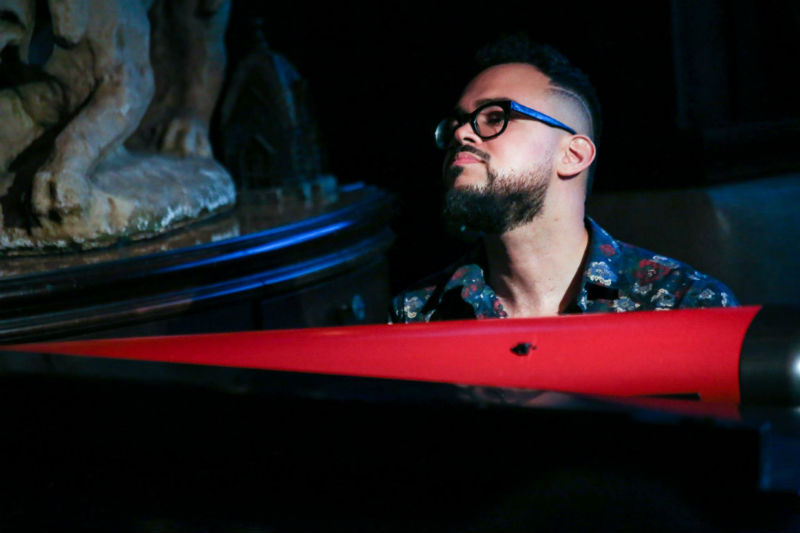
Derrick Benford is a piano wiz who knows a thing or two about jazz. He’s been playing in the Michigan jazz scene for a while now, and this Detroit native has been involved with many groups and artists; lately, he’s been a member of the Gene Dunlap Band.
He’s also a Spirit of Detroit Award winner and has traveled across the U.S., U.K., and Asia working alongside the likes of George Clinton, Marcus Belgrave, and his brother Vassal Benford, among many others in the international jazz scene.
For his latest endeavor, the Derrick Benford Quartet, the pianist meshes jazz, hip-hop, R&B, and gospel into their own funky sound.
The quartet will be performing at AADL’s downtown library on Valentine's Day for a special show dedicated to love in all forms. I spoke to Derrick Benford about many things including his piano background, concerts at the library, his international experiences, and more.
Set the Controls for the "Heart" of the Sum: Robert Spalding Newcomb's music adds form to freedom
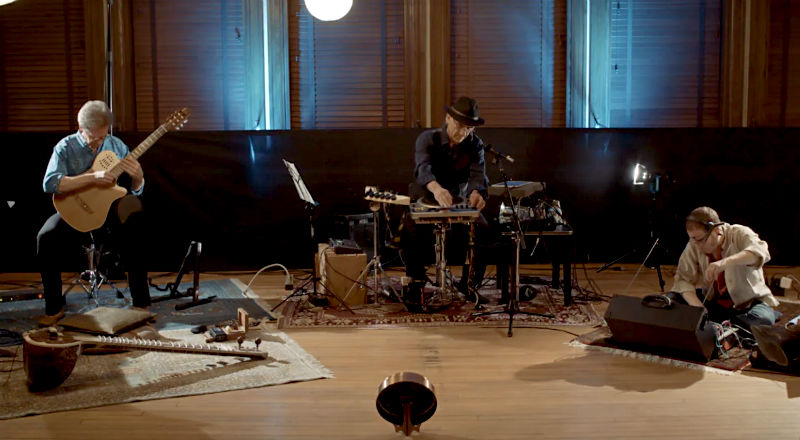
In "The Heart Sutra," one of Buddhism's most famous texts, there's a line that's often translated as "form is emptiness and the very emptiness is form."
I don't know if this particular sutra informed Robert Spalding Newcomb's structured improvisation "Dance of the Heart," but this long-form piece revels in the sort of free-flowing ambiance that feels simultaneously disembodied and corporeal. The music is an ode to freedom and that freedom helps shape the music's form.
Newcomb is a polymath -- computer expert, software developer, yoga teacher, stringed-instrument virtuoso (guitar, sitar) -- who combines all his talents to create modern music that's rooted in ancient traditions. "Dance of the Heart" is a reflection of that unique skillset, combining electronic percussion, synths, and effects-laden guitar.
"Dance of the Heart" premiered March 13, 2018, at the Riverside Arts Center in Ypsilanti -- you can watch the high-quality video here -- with Newcomb (guitar, sitar, laptop), Ken Kozora (electronic and acoustic percussion, iPad, trumpet), and Erik Gottesman (analog synthesizers, bio-sensors with EEG/shortwave/Theremin-style gesture proximity and ribbon controllers). The trio is reuniting at Riverside Arts for another performance of "Dance of the Heart" on
Newcomb explained the concept behind "Dance of the Heart" in an email interview:


































